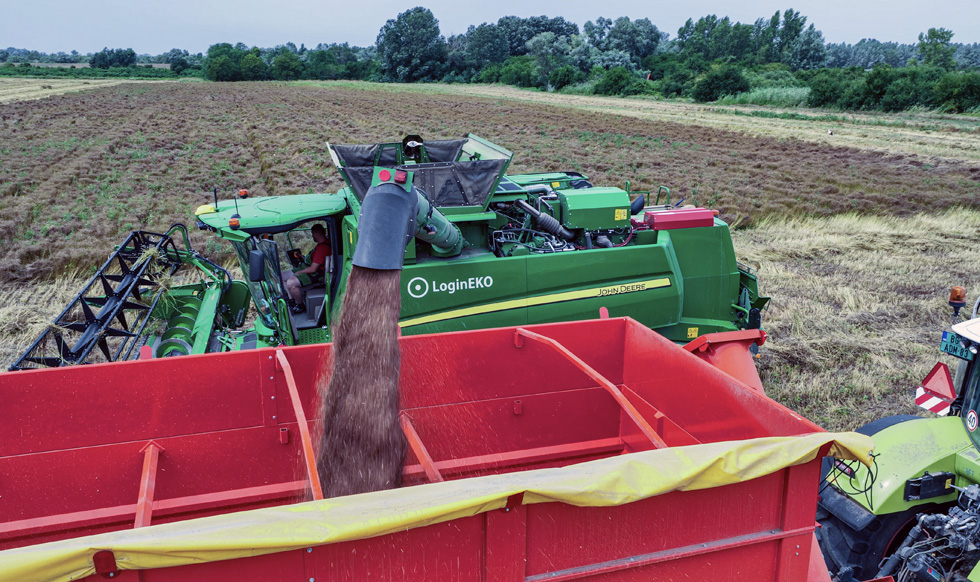Harvest Efficiency Redefined with LoginEKO Farming Software
July 24, 2024LoginEKO Farming Software redefines harvest efficiency, optimizing operations from planning to storage. Soon to be shared globally.
Read articleWe’re leveraging the power of a 5,000 year-old superfood to enhance sustainable farming practices.

Flax, a versatile and resilient crop, plays a significant role in enhancing human health and nutrition. At LoginEKO, we have found that using flax as a winter crop has proven to be a tactical move, particularly when it comes to effective weed control. The careful management of its growth phases and harvest has led to positive yield results that showcase its potential as a valuable asset in sustainable farming practices.
Sowing flax in winter makes it easier to control weeds, when compared with plants sown in the spring. Wintertime allows us to generally only implement one weed control session, a few weeks before harvest. This year, our farmers have achieved satisfactory results, with a yield of 1,722 kg per hectare. Such an approach not only optimizes crop output, but also contributes to overall agricultural efficiency.
The uniqueness of flax harvesting lies in the observation of its growth phases. The harvesting (this link will take you to the field map in our Farming software, where you can access key data from the actual flax harvest) is strategically timed when flax trees turn brown. This phase is crucial to avoid complications, as flax fibers have a tendency to get tangled around rotating parts of the combine. Such precision in harvest planning ensures a smooth and efficient extraction process, and minimizes potential disruptions.
Flax’s modest production requirements make it an ideal candidate for inclusion in a multi-year organic crop rotation. Its adaptability and low resource demands align with sustainable farming practices, allowing farmers to diversify their crop rotations while maintaining soil health. Flax’s ability to thrive in diverse agricultural settings further underscores its potential as a valuable contributor to sustainable and organic farming systems.
Beyond its contributions to agriculture, flax offers a treasure trove of nutritional benefits. Flax seeds, a key product of the plant, are packed with essential vitamins, minerals, and omega-3 fatty acids. With a history spanning over 5,000 years in human diets, flax seeds have recently gained popularity in modern protein-based meals.
LoginEKO Farming Software redefines harvest efficiency, optimizing operations from planning to storage. Soon to be shared globally.
Read articleWhat if we told you that sunflower seeds you buy were sprayed with 9 active ingredients in pesticides? What if we told you this wouldn't have been necessary?
Read articleLoginEKO's moves into gluten-free farming tapping into rising consumer trends for a healthier market niche.
Read article